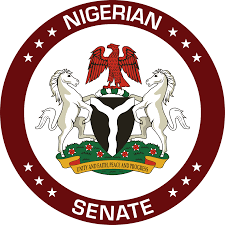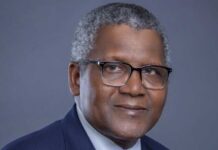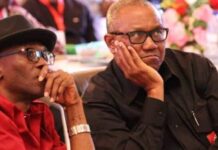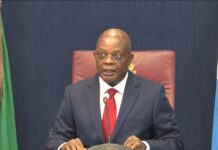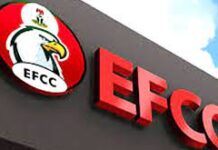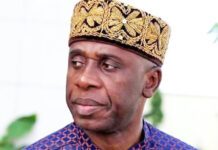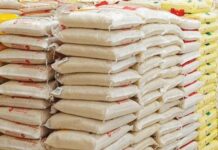The Senate has tasked its ad- hoc committee to investigate all contracts awarded for rehabilitation of all state owned refineries from 2010 to 2023.
This followed the adoption of a motion on “Urgent need to investigate various turnaround maintenance projects of Nigerian refineries, to uncover waste and forestall further waste of scarce public resources, by Sen. Karimi Sunday ( APC- Kogi) at plenary on Tuesday.
Presenting the motion, Sunday said state owned refineries in Nigeria had been a serious drain pipe of public finance, depriving citizens of joy of being an oil producing nation.
He said from 2010 to date Nigeria was estimated to have spent N11.35 trillion on renovation of refineries, yet unproductive, revealing that other cost in other currencies had also been spent.
Sunday said the Federal Government had spent over N6 trillion between 2010 and 2020 on fuel subsidy due to Nigeria’s low refining capacity and had spent almost twice the amount on rehabilitating and turn around maintenance projects on its refineries in Port Harcourt, Kaduna and Warri between 2010 and 2022.
He said in spite of the moribund condition of the four refineries, the operating costs of the refineries between 2010 and 2020 was N4.8 trillion.
“The refineries are estimated to make cumulative loss of N1.64 trillion within four years.
“Concerned that the federal government of Nigeria has carried out rehabilitation projects in Port Harcourt Refinery Company (PHRC) over a period of seven years from 2013 to 2019.”
He said phase I of the project was expected to be completed in 28 months after the contract, while phase II was to be completed in 24 months and phase III in 44 months of execution.
He, however, said the Port Harcourt refinery as at Oct. 24, remained a money pit.
He said by projections and representations from NNPCL, the renovation work ought to be completed and operations of the refinery commenced by June 2023.
Sunday said federal government in a bid to revitalise the Warri Refinery, the Federal Government had injected huge public funds between 2014 and 2019.
That particularly, around the 24 June 2022 the Federal Executive Awarded Maintenance Services for Quick Fix Repairs of Warri Refinery to Daewoo Engineering and Construction Limited at 497, 328, 500.00, dollars.
” Yet at the moment the Warri Refinery is inactive, this is different from the 2017 contract award to Saipem Contracting Nigeria Limited for Tech Plant Survey of the Warri and Kaduna Refineries at 2, 025, 000.32 Euros,” he said.
He also said it was disturbing that the Kaduna refinery and Petro-Chemical Company (KRPC) had over the past 10 years gulped N2. 266 billion in the name of rehabilitation, yet it remained unproductive.
“The Nigerian National Petroleum Company Limited (NNPCL) approved a renovation deal with Daewoo Engineering and Construction Limited to renovate Kaduna refinery in February 2023.
” And it is intended to restore the refinery to production of 110,000 barrels of petrol per day, at least 60 percent capacity by early 2024,” he said.
He expressed worry that if a thorough investigation of the past and current rehabilitation project was not undertaken by the Senate, the circle of awarding unproductive turn around maintenance contracts may not abate.
This, he said would result in retaining the status quo, adding that rehabilitation contracts have become conduit pipes for siphoning pubic funds.
He said Nigerian citizens had continued to groan over high cost of petroleum products due to the moribund situation of the state owned refineries.
Contributing, Sen. Isa Jibril (APC-Kogi), who seconded the motion said the motion brought to the fore, the worrisome situation in the nation’s oil and gas sector.
He said it was worrission that N4.8 trillion was spent on operating cost when the refineries were not functional.
Sen. Adams Oshiomhole(APC- Edo) said the senate must ensure its proper oversight functions to ensure Nigerians enjoy value for their tax.
“We need to unravel while the refineries that were working before suddenly became moribund.
“The amount so far spent on the refineries can build brand new ones, Senators must take the issues with all seriousness it deserves,” he said.
Sen. Adamu Aliero said the refineries had remained moribund in spite of huge sums spent on turnaround maintenance.
He alleged that the moribund nature of the refineries was a deliberate sabotage by some persons who wanted to continue petroleum products importation into the country.
The Senate also urged the committee to ascertain progress on ongoing works in all refineries to forestall waste and corruption.
It also urged the committee to interrogate the Ministry of Petroleum Resources, the NUPRC, NNPCL, BPE, on the best approach to commercializing or ensuring profitability of the state owned refineries.
It urged the committee to invite the NNPCL, NUPRC and LNG to explain the nation’s preparation for green energy sources in line with the Paris Agreement on climate change.
Deputy President of Senate, Barau Jubrin, who presided over plenary said those found to have taken resources meant for functioning of refineries should be brought to book.
He thereafter named Sen. Isah Jibrin (APC -Kogi as Chairman of the ad-hoc committee.
Jubril will investigate the matter alongside the Chairmen of committees on Petroleum Resources Downstream, Upstream, Gas, Finance, Appropriation and Public Accounts.
Other members of the committee included Sen. Abdullahi Yahaya (PDP- Kebbi) Sen. Adamu Alero (PDP-Kebbi), Sen. Ifeanyi Ubah(APC-Anambra) and Sen. Sunday Karimi Sunday (APC- Kogi).
The committee was to present its report in four weeks. (NAN)
Reps invite CBN gov for lifting forex ban on toothpicks, others
The lifting of the ban on foreign exchange for 43 items by the Central Bank of Nigeria may ruin local economy, a member of the House of Representatives, Sada Soli, warned on Tuesday on the floor of the House of Representatives.
This is just as the House invited the Governor of the Central Bank of Nigeria, Yemi Cardoso, to appear before it following the apex bank’s decision to lift the foreign exchange ban on fertiliser, cement, toothpick, and 40 other items.
It would be recalled that the 43 items were in 2015 restricted from accessing forex at the official market rate.
CBN’s sudden decision to lift the ban comes against the backdrop of high volatility levels experienced in the foreign exchange market owing to the unification of all trading windows into the investors’ and exporters’ window (the official FX market) by President Bola Tinubu’s administration.
The apex bank had in a statement issued by its Director of Corporate Communications, Isa AbdulMumin said, “The CBN reiterates that the prevailing Foreign Exchange (FX) rates should be referenced from platforms such as the CBN website, FMDQ, and other recognised or appointed trading systems to promote price discovery, transparency, and credibility in the FX rates.”
At a plenary session on Tuesday, the Green Chamber passed a resolution to summon the CBN governor following the adoption of a motion of urgent public importance sponsored by Sada Soli, a member of the House representing Jibia/Kaita Federal Constituency, Katsina State on the platform of the All Progressives Congress.
Justifying the significance of the motion, Soli said the decision of the apex bank may lead to the closure of factories and ultimately erode the nation’s capacity to build the local economy.
In his words, it is doubtful if the new policy would make any meaningful impact on the Nigerian economy, stressing that “middlemen” may take undue advantage of it for their own good.
Contributing to the motion, a lawmaker representing Oshodi/Isolo II Federal Constituency, Lagos State, Jesse Onuakalusi, called for the immediate reversal of the policy until the House concludes a legislative action on the matter; a prayer that was rejected by the lawmakers.
An amendment to the motion by Kingsley Chinda, representing Obio/Akpor Federal Constituency, Rivers State noted that the Cardoso should appear before the House Committee on Regulatory Banking, Finance and Customs to explain the rationale behind the lifting of the ban was thereafter adopted.



